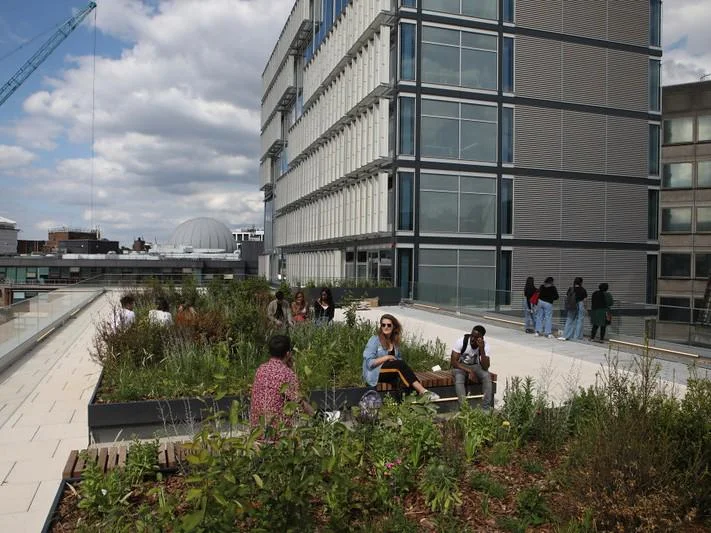LSE's commitment to sustainability 'stronger than ever'

LSE’s Annual Sustainability Report 2020/21, published today (18 February), highlights the School’s ongoing commitment to tackle the climate crisis and shape a sustainable world.
This dedication recently saw the School join the United Nations Race to Zero, a global campaign to rally non-state actors - including educational institutions - to take decisive action towards a ‘net zero’ carbon world.
This is something LSE has already taken sector-leading activity on with the School becoming the first carbon neutral verified university in the UK for all its measured emissions. This status was attained through ongoing work by LSE to reduce its carbon footprint and mitigate its residual emissions by supporting carbon reduction projects. The university’s direct emissions have reduced by 44 per cent since 2005, despite an increase in campus size and student numbers.
Other achievements highlighted by the report include the School’s work with the Global Alliance of Universities on Climate (GAUC). Co-founded and chaired by LSE, the collective encourages and supports universities around the world to address climate change as a core part of their mission.
Driven by the School’s senior leadership team, the report illustrates how sustainability has been integrated into key areas across the university including education, research, engagement and leadership, investment and collaboration – as set out in .
The Education for Sustainability initiative, which aims to embed sustainability across our teaching and learning experiences, for example, has seen numerous successes this year. These include the redesign of LSE100 - LSE’s flagship interdisciplinary course for all undergraduate students - with sustainability at its core.
Students and staff have been at the heart of all decision-making processes around sustainability and there has been an increase in engagement from these groups with now over 15 environmentally themed student societies at LSE. In addition, the School has funded various environmental projects across campus including a sustainable fashion show, a series of webinars on green issues such as veganism and a campaign to reduce single-use plastics.
Going forwards, the School is working to achieve its next target of becoming net zero carbon through continuing to deliver on the carbon reduction initiatives set out in its
Commenting on the report, LSE’s Director Minouche Shafik said: "This has been a challenging year for all of us impacted one way or another by the pandemic. But it has also been a year where we learned how to do many things differently. Among the things we learned at LSE is that our commitment to sustainability is stronger than ever.
"Critical to our success is everyone across the LSE community playing their part, be it students, academics and professional staff, and alumni. If you have not done so already, join us on this important journey to create a sustainable LSE and ensure the School makes its contribution in shaping a more sustainable world."
Charles Joly, Head of Sustainability at LSE added: "The scope and scale of progress summarised in our Annual Sustainability Report is testament that the momentum for sustainability at LSE continues to grow with action driven by our students, educators, researchers, and alumni with the full support of LSE’s senior leadership team. We know there is more we can do to accelerate our response to the climate crisis and unlock further opportunities for LSE to maximise its impact in shaping a sustainable world, working in collaboration with the diverse LSE community and our external partners."